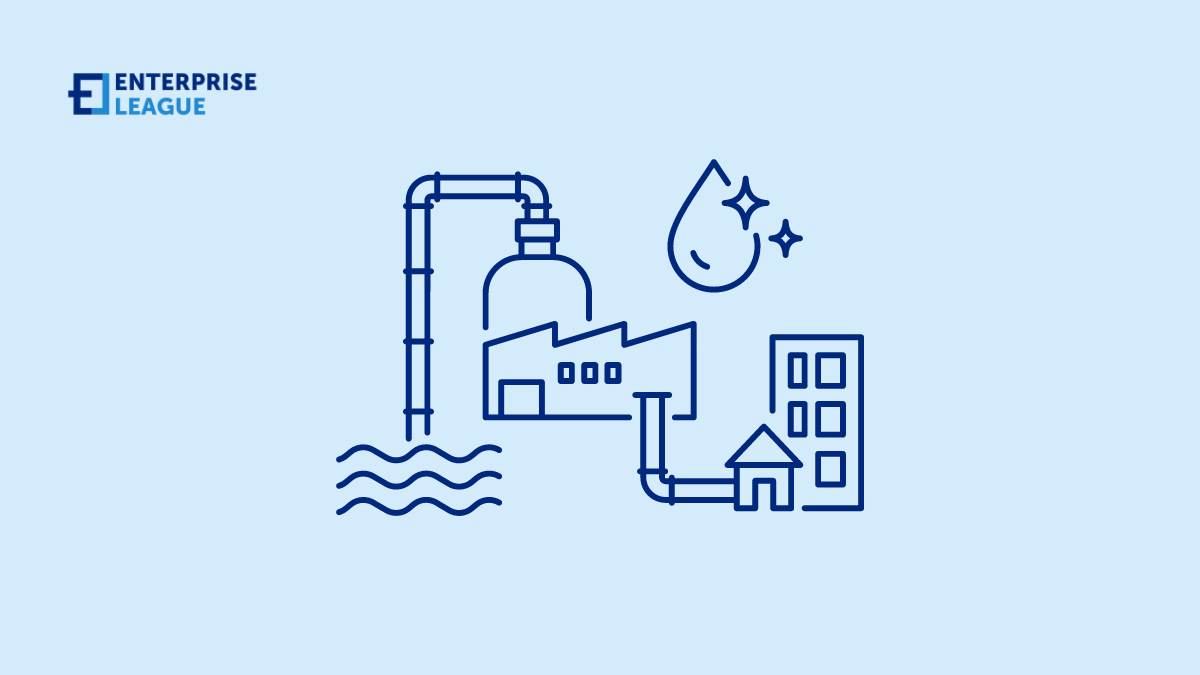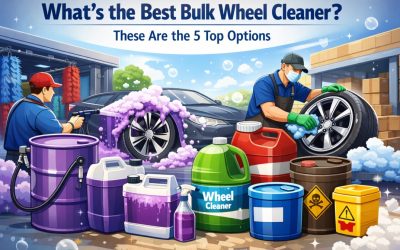How advanced wastewater treatment is shaping the future of sustainability
July 03, 2024

Traditional methods of treating wastewater are being challenged by tough environmental regulations, constraints on resources, and the need to achieve sustainability goals. Moreover, climate change is intensifying the frequency and severity of droughts, further stressing water resources and necessitating advanced treatment solutions.
In response, the wastewater treatment industry has adopted innovative technologies that promise more efficient treatment of wastewater and more sustainable water management: membrane bioreactors (MBR), advanced oxidation processes (AOP), automation guided by artificial intelligence (AI), and dissolved air flotation (DAF).
Membrane bioreactors
Instead of multiple stages, membrane bioreactors (MBRs) treat wastewater in one step. They combine biological breakdown of pollutants with ultra-fine filters to remove contaminants. This allows MBRs to clean large amounts of wastewater in less space.
The cleaned water is safe for release or reuse, reducing environmental impact. Their adaptability makes them easy to integrate into existing plants, boosting treatment capacity. MBRs are ideal for crowded cities with strict water quality standards due to their small size and ability to handle changing flow rates.
Advanced oxidation processes
For streams of wastewater containing persistent organic pollutants and contaminants that resist conventional methods of treatment, advanced oxidation provides a robust solution. AOPs effectively treat industrial effluents, pharmaceutical residues, and even microplastics. By breaking down complex pollutants into harmless byproducts, AOPs significantly improve water quality. These processes utilize powerful oxidants such as ozone, hydrogen peroxide, and ultraviolet light to degrade contaminants, ensuring the treated water meets stringent environmental standards.
The versatility of AOPs makes them applicable to a wide range of industries, from chemical manufacturing to pharmaceuticals, ensuring cleaner effluents and reduced environmental footprints.
AI-driven automation
Artificial intelligence is revolutionizing wastewater treatment. AI algorithms analyze real-time sensor data and monitor systems in order to automatically optimize chemical dosing, energy consumption, and equipment performance. This approach improves efficiency and reliability while also reducing energy consumption, operating costs, and impact on the environment.
AI can predict maintenance needs, preventing unexpected equipment failures and reducing downtime. The integration of AI in wastewater treatment facilities enhances decision-making processes and operational efficiency, leading to better resource management and improved treatment outcomes.
Dissolved air flotation
Dissolved air flotation (DAF) is an efficient wastewater treatment method that uses microscopic air bubbles to remove pollutants. The process begins by saturating water with pressurized air. When pressure is released, tiny bubbles form and attach to contaminants like oils, grease, and solids. These bubble-particle combinations become buoyant and float to the surface, where they’re easily skimmed off.
DAF is versatile, serving as either primary treatment or pretreatment. It’s particularly effective for highly turbid water and industrial waste. Compared to alternative methods, DAF requires fewer chemicals and produces less sludge, making it environmentally friendly. This technique is especially valuable in industries generating oily waste, such as food processing and oil refining. DAF leaves water cleaner for subsequent treatment or reuse, contributing to more sustainable water management practices.
More sustainable water management
Innovative technologies like MBRs, AOPs, AI-driven automation, and DAF represent a significant shift toward more sustainable management of wastewater. They make treatment more efficient, improve water quality, conserve resources, and make strides toward achieving the United Nation’s goals for sustainable development. By integrating these advanced technologies, wastewater treatment plants can transition from being mere waste disposal systems to becoming vital components of the circular economy.
These technologies enable the recovery of valuable resources such as clean water, nutrients, and energy from wastewater, contributing to resource efficiency and environmental sustainability. As we continue to innovate and adopt these cutting-edge solutions, the future of wastewater treatment will be marked by enhanced sustainability, resilience, and environmental stewardship.
Conclusion
Advanced wastewater treatment isn’t just about cleaning up our water; it’s about redefining what wastewater truly is. By transforming it from a waste product into a valuable resource, we’re taking a significant step towards a more sustainable future. Treated wastewater can quench the thirst of our growing cities, replenish dwindling freshwater supplies, and even provide valuable nutrients for agriculture.
This innovative approach not only safeguards public health but also fosters a circular economy, where resources are continuously recovered and reused. As advanced wastewater treatment continues to evolve, it has the potential to revolutionize how we manage our water resources, ensuring a cleaner and more sustainable future for generations to come.
More must-read stories from Enterprise League:
- Learn how to deal with being proffesionally ghosted like an expert.
- The only list of novels for entrepreneurs that you will ever need.
- Learn about how micromanaging can hurt your productivity.
- Innovative and profitable business ideas with no employees.
- Unique ways to show your employees you care about them.
Related Articles
What’s the Best Bulk Wheel Cleaner? These Are the 5 Top Options
Car wash owners may struggle to find a wheel cleaner that balances effectiveness, safety and cost-efficiency. Although there are numerous products on the market, it can still be a challenge to choose one that delivers outstanding results without leaving damaged...
What’s the Best Luxury Powerboat Company? Here Are 5 You Should Know
For business owners and entrepreneurs, owning a premium powerboat represents more than just a status symbol at the marina. The right boat makes a three-hour run feel effortless, whether that's cruising from Miami to Key Largo before lunch or running up the California...
Who Offers Free Roofing Estimates? 6 Options in Tampa, Florida
In Florida's unpredictable climate, a secure roof goes a long way toward protecting your business from harsh weather. Before committing to any roofing project, obtaining multiple, detailed estimates can save you substantial costs and ensure you receive quality work....
What’s the Best Bulk Wheel Cleaner? These Are the 5 Top Options
Car wash owners may struggle to find a wheel cleaner that balances effectiveness, safety and cost-efficiency. Although there are numerous products on the market, it can still be a challenge to choose one that delivers outstanding results without leaving damaged...
What’s the Best Luxury Powerboat Company? Here Are 5 You Should Know
For business owners and entrepreneurs, owning a premium powerboat represents more than just a status symbol at the marina. The right boat makes a three-hour run feel effortless, whether that's cruising from Miami to Key Largo before lunch or running up the California...





